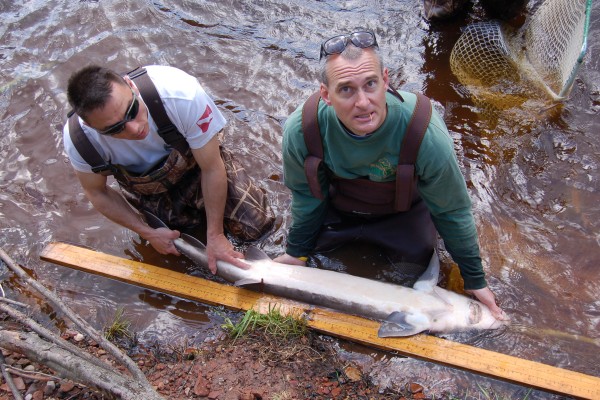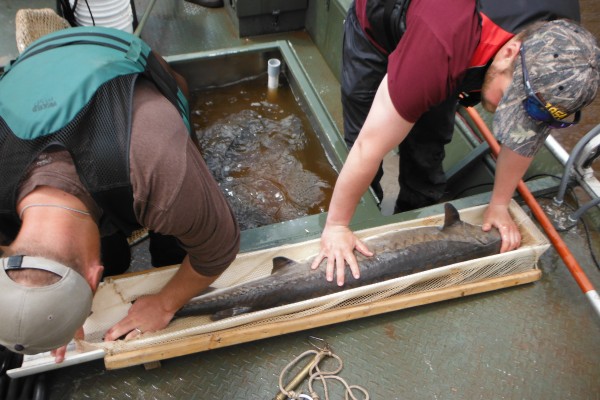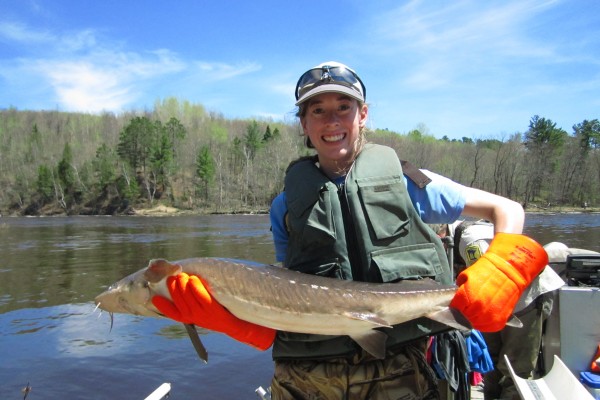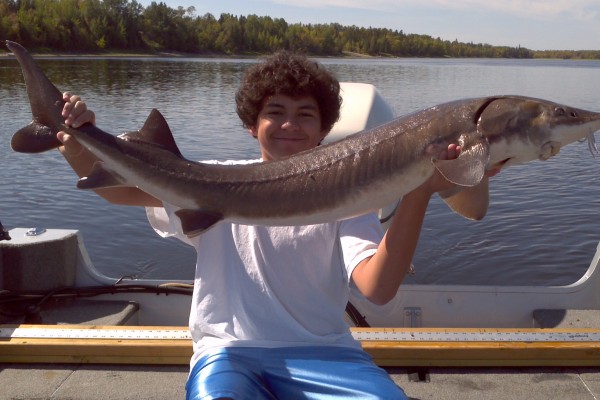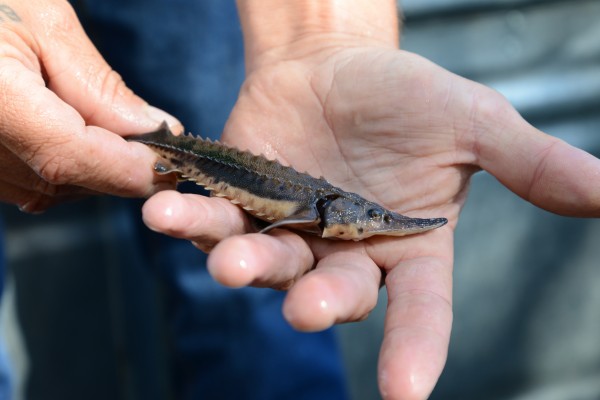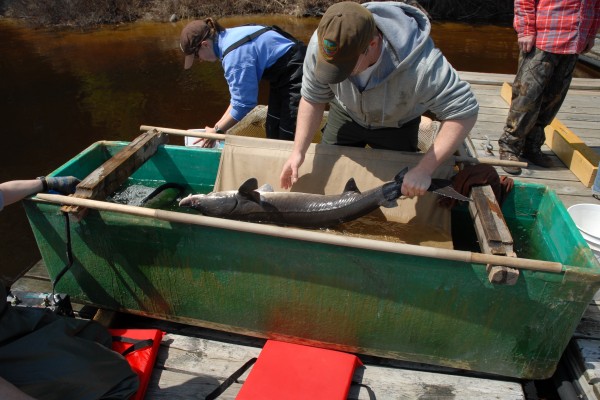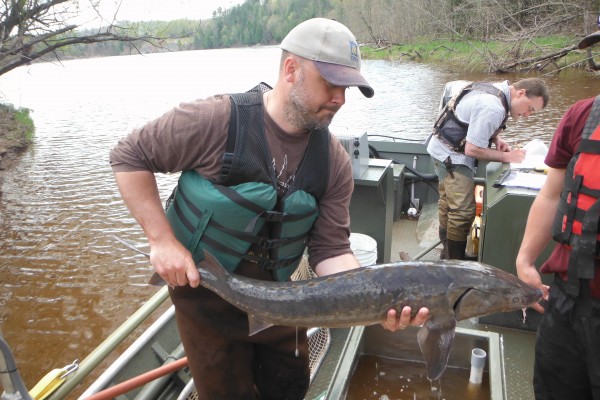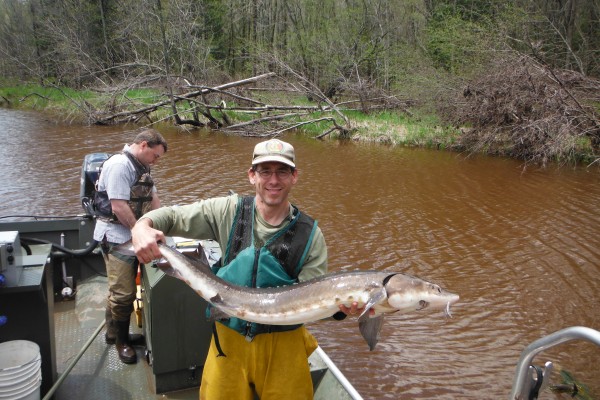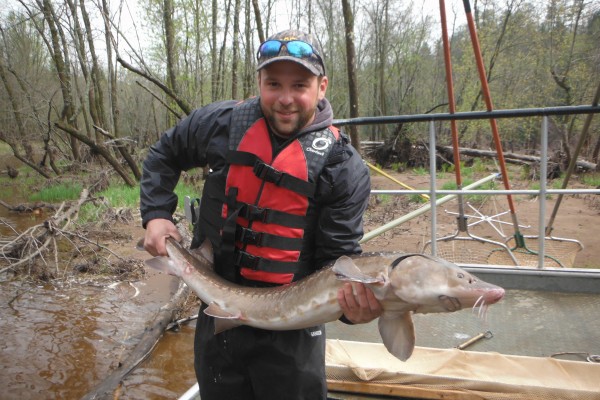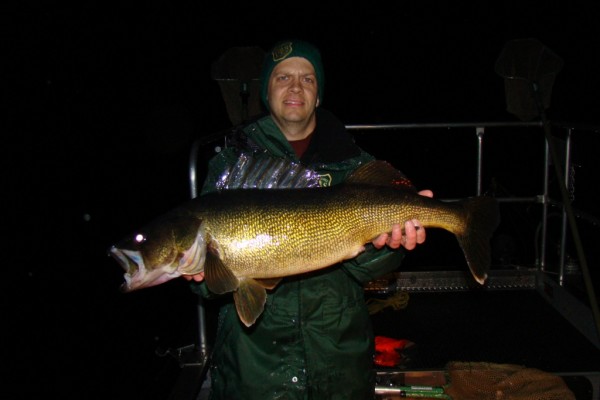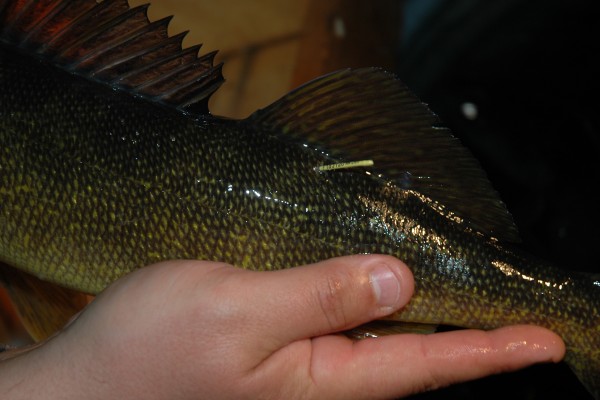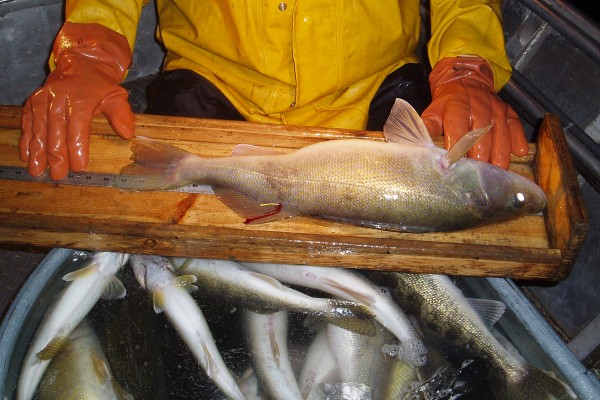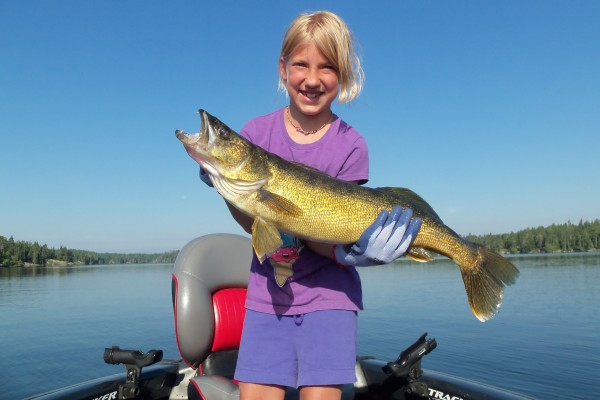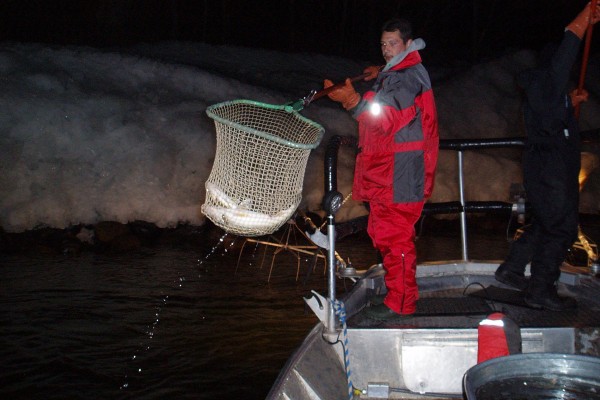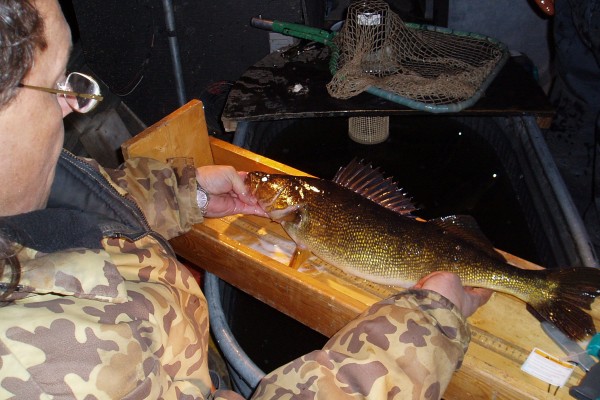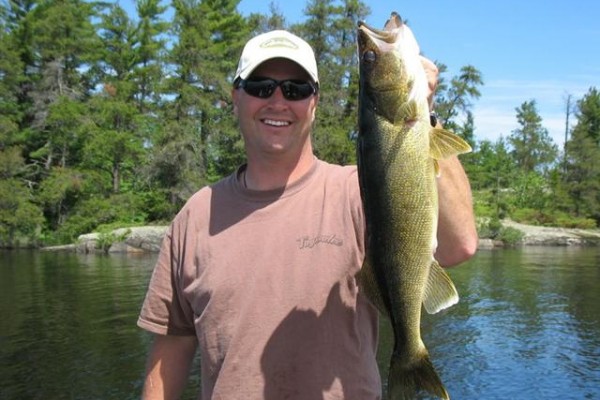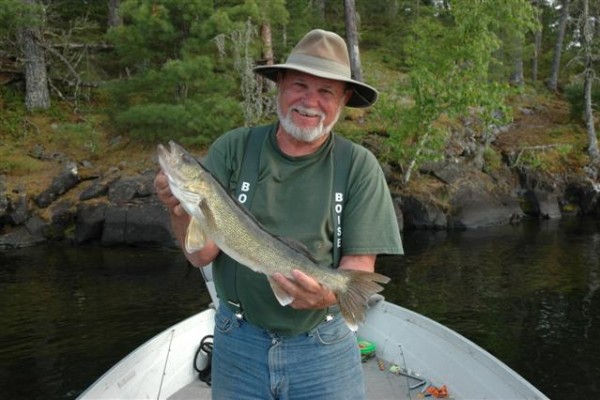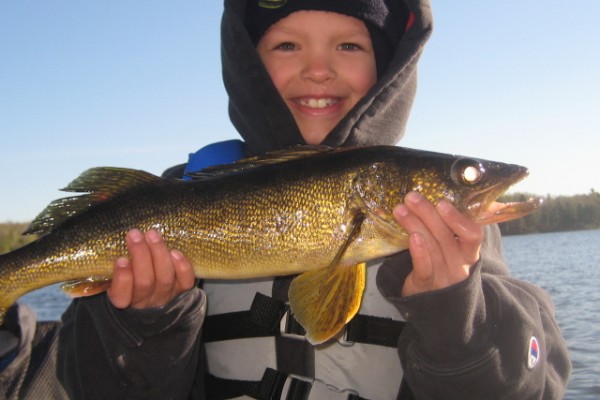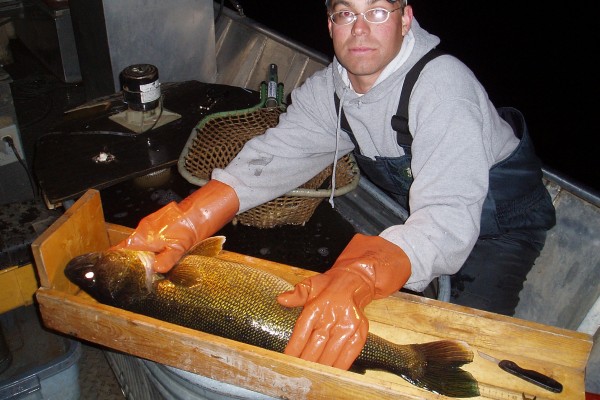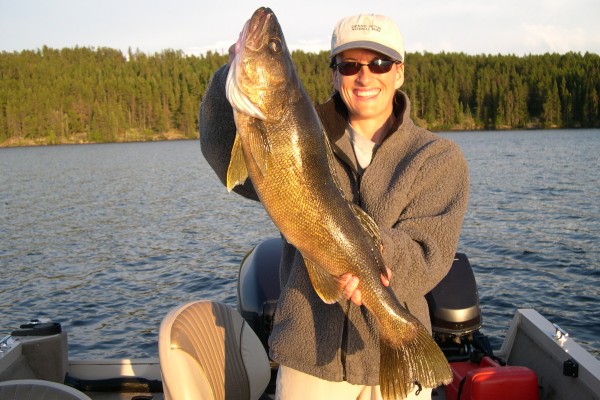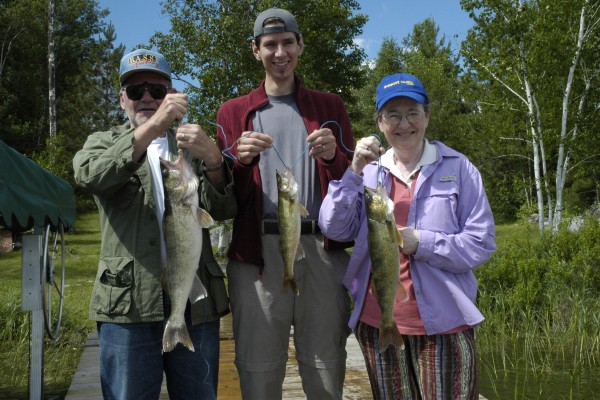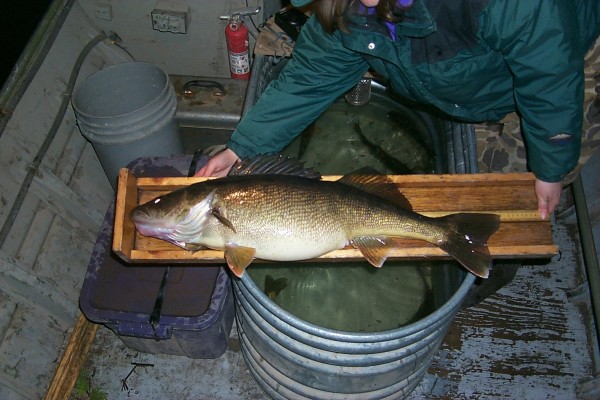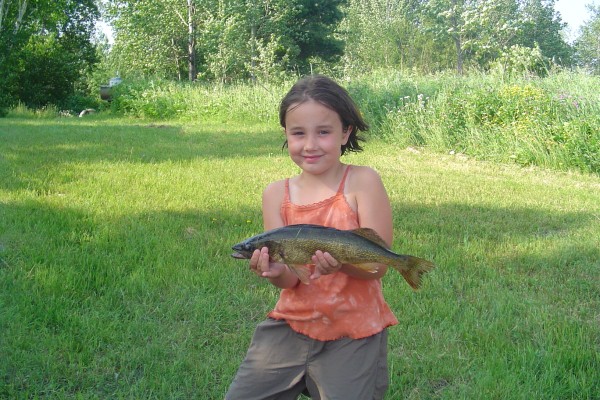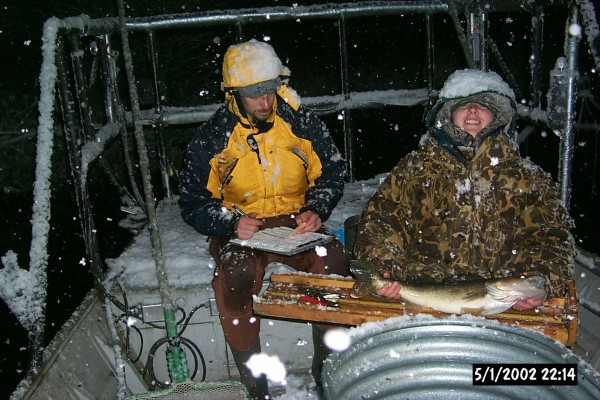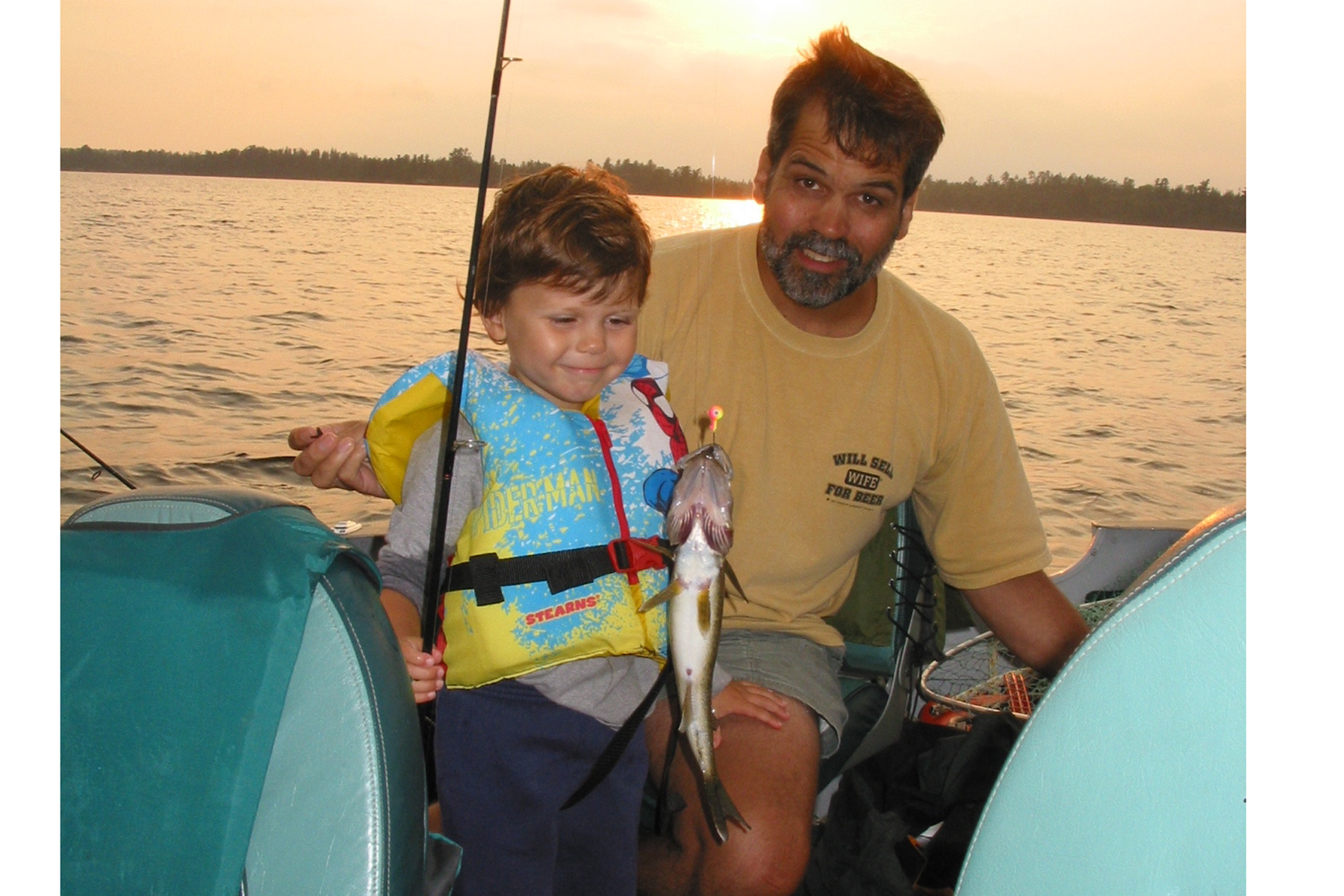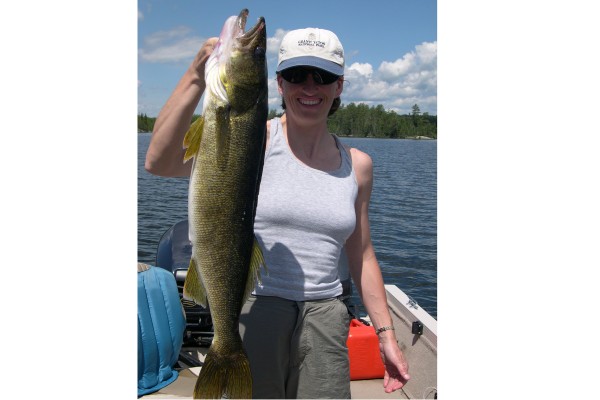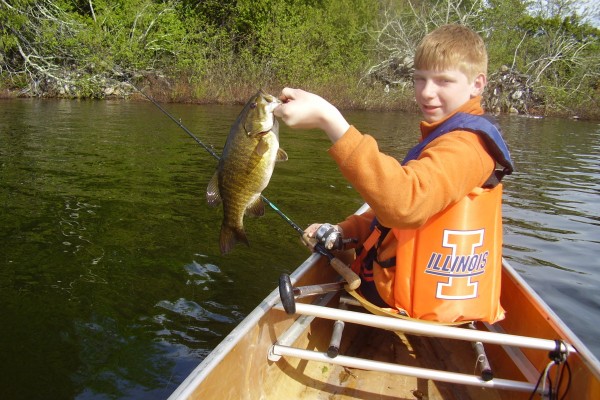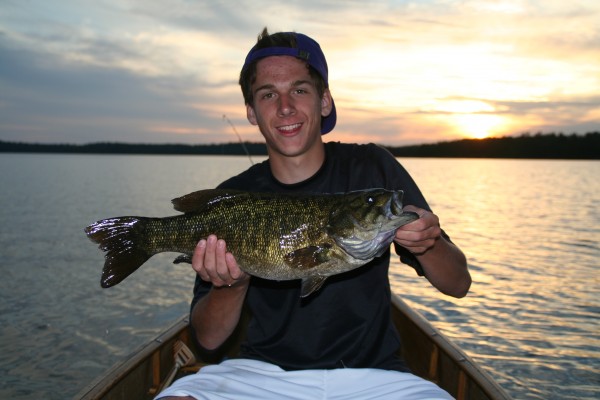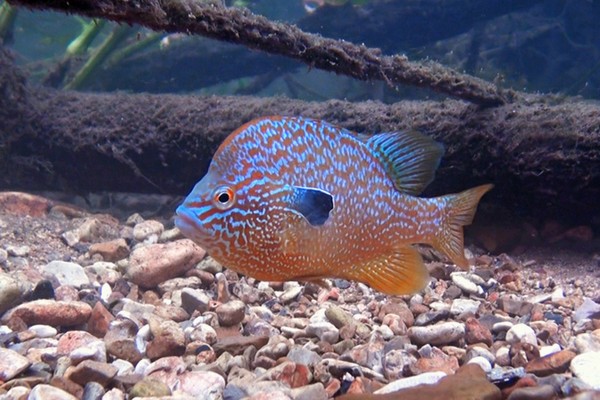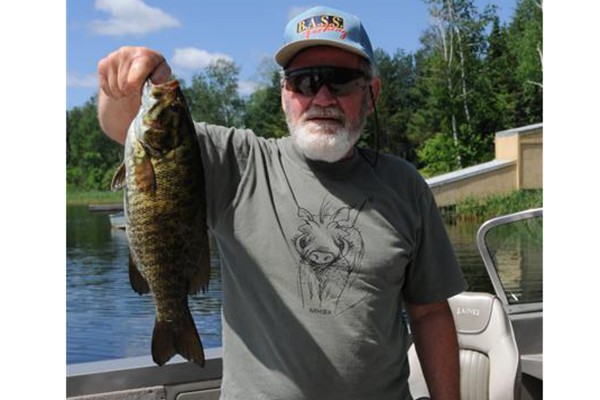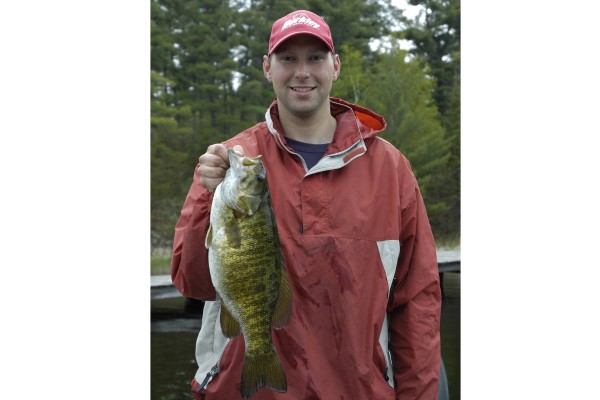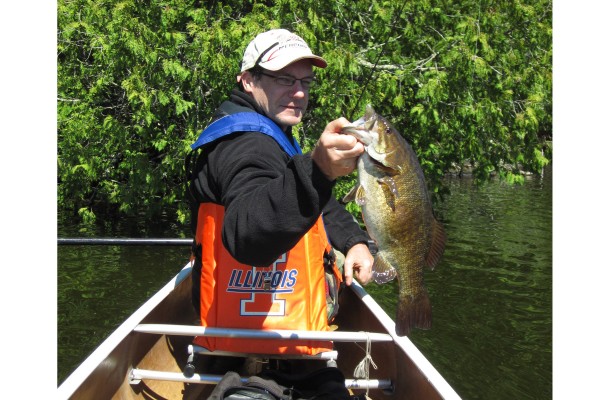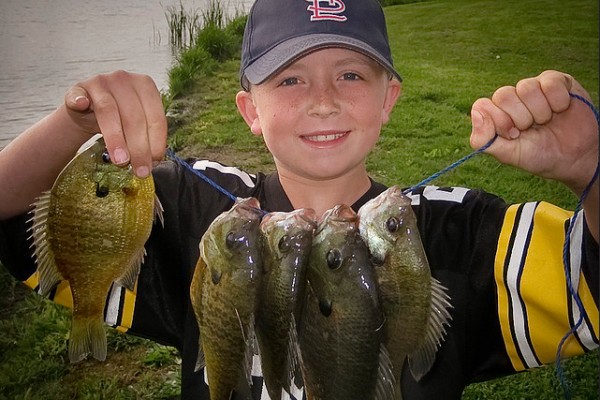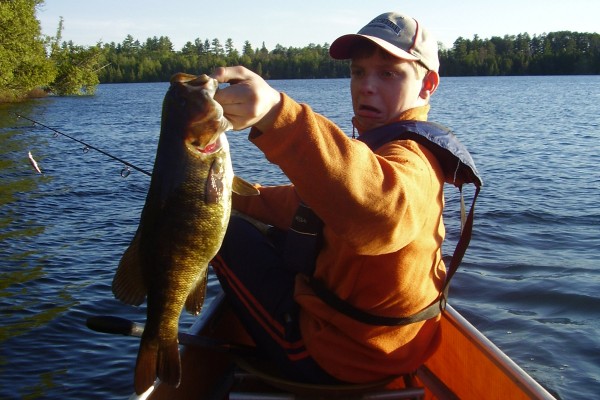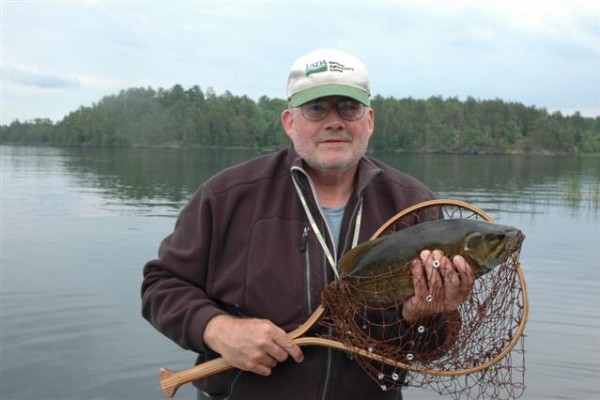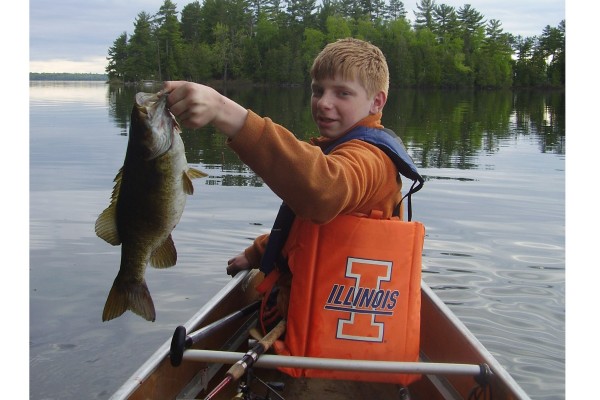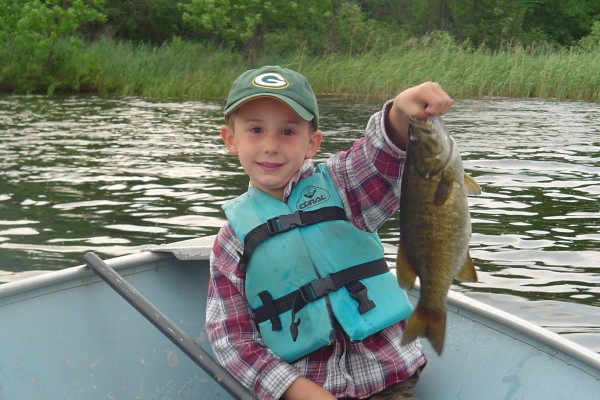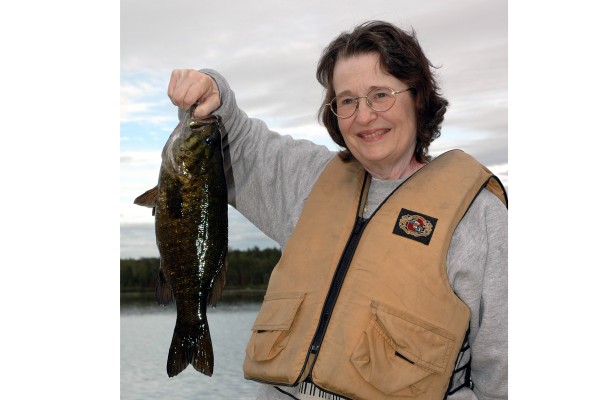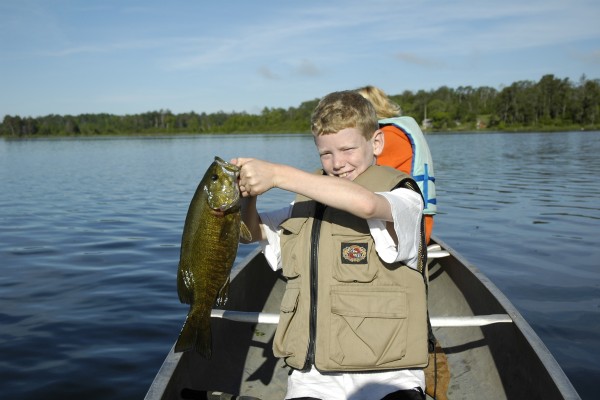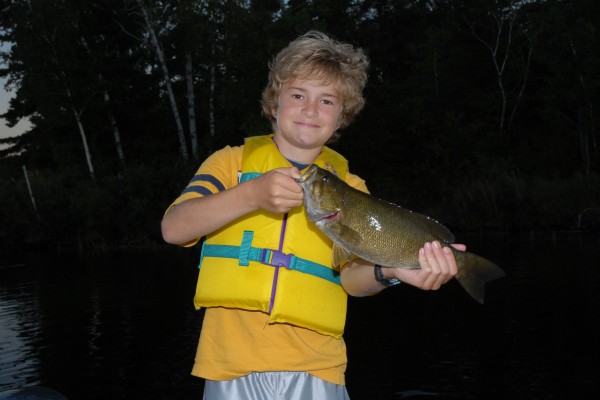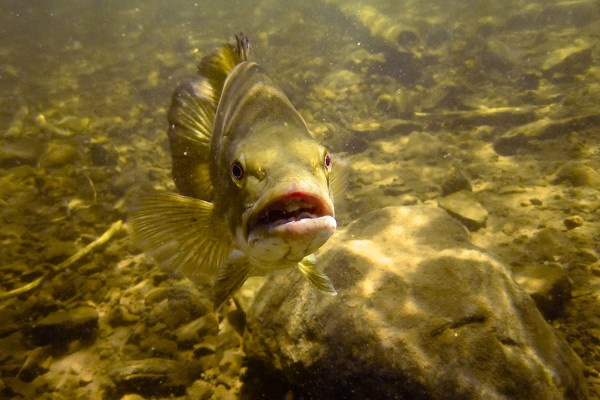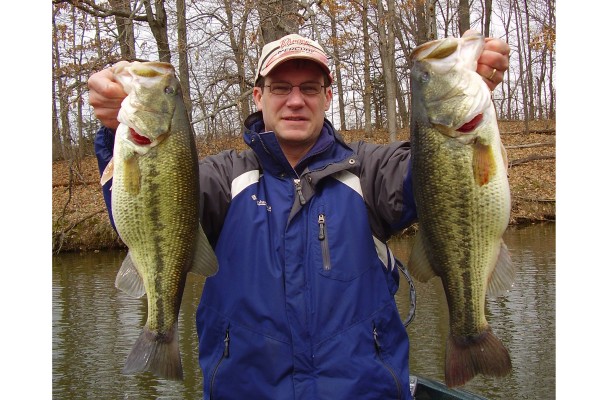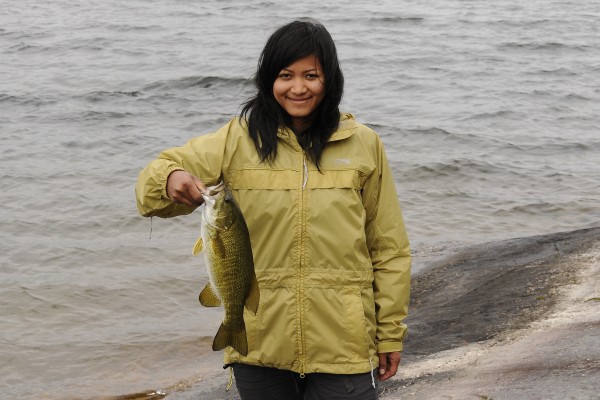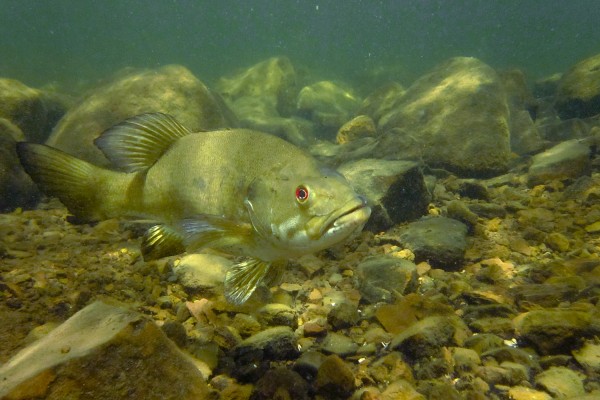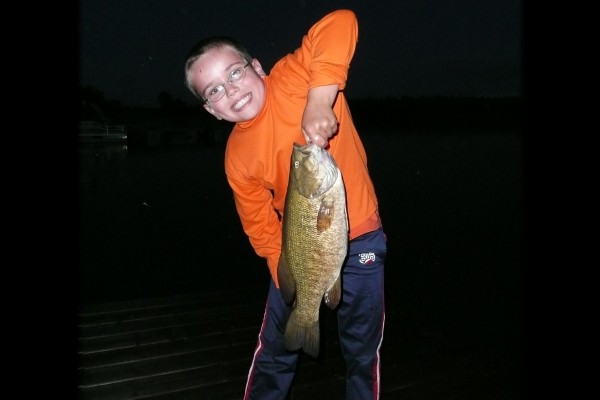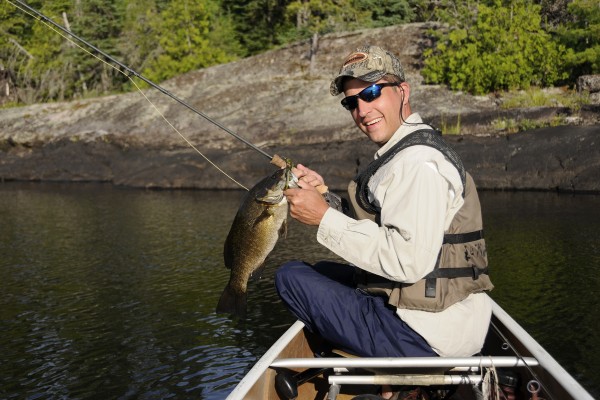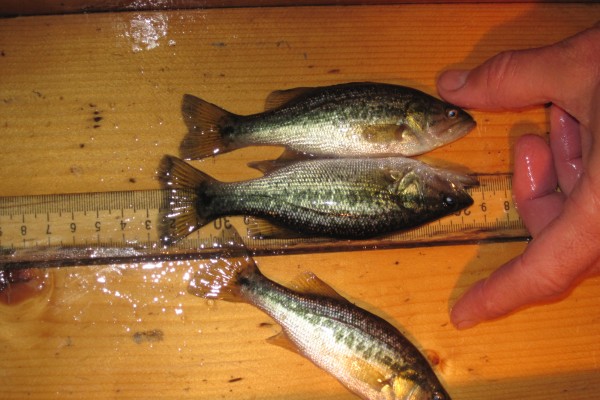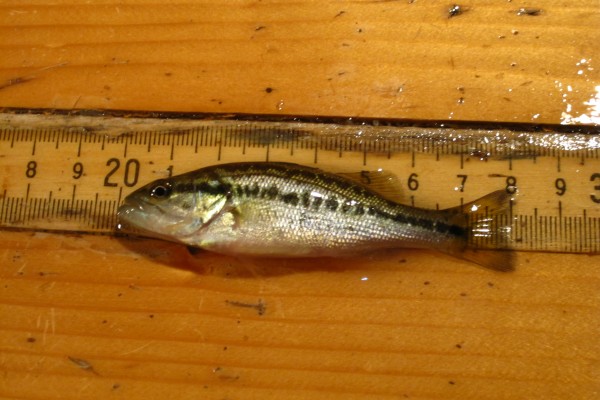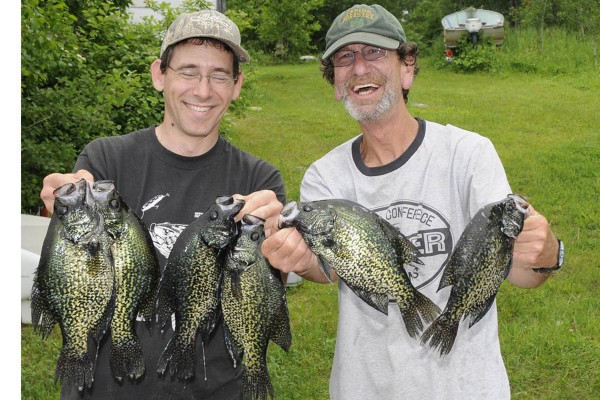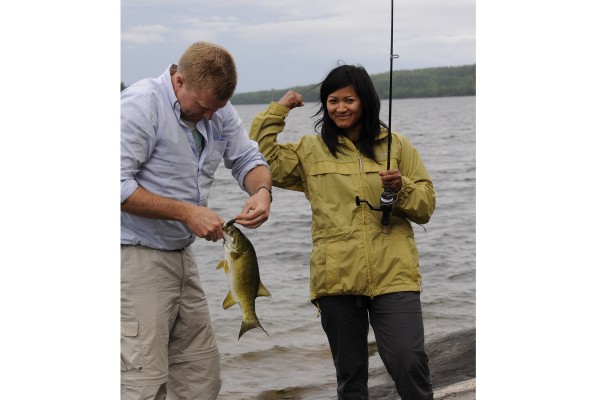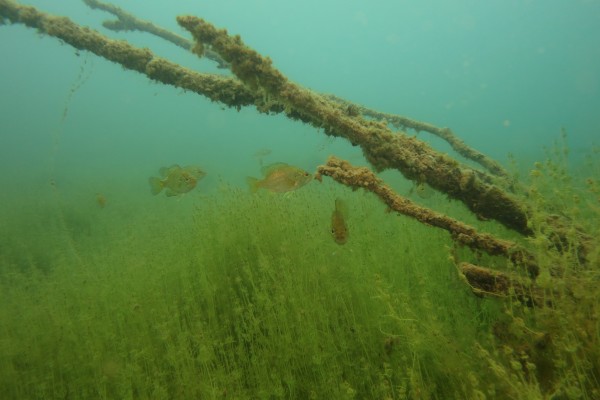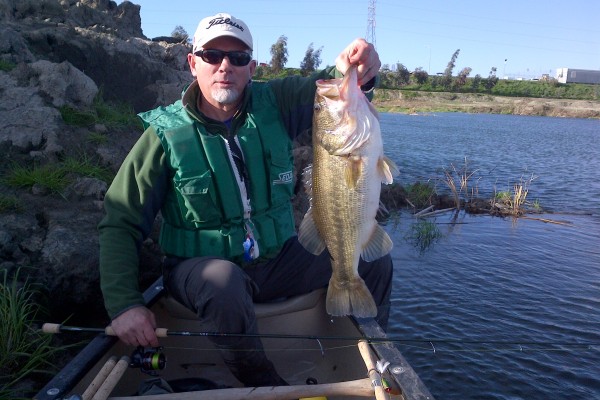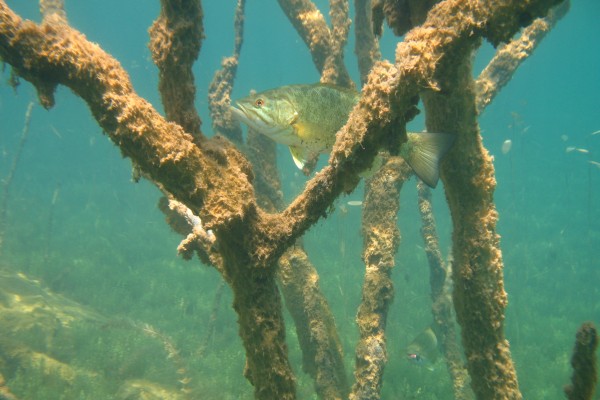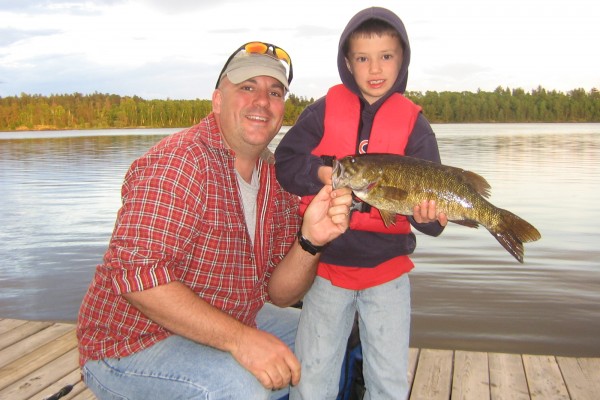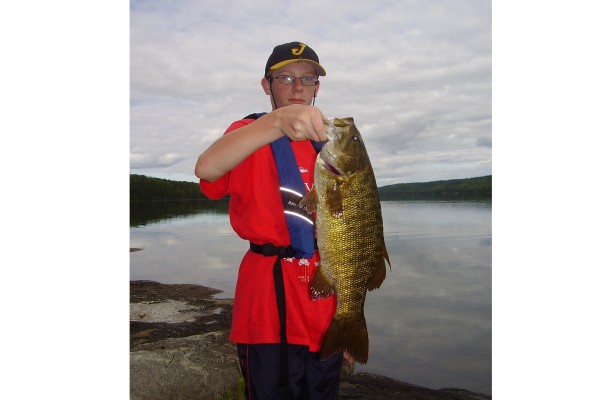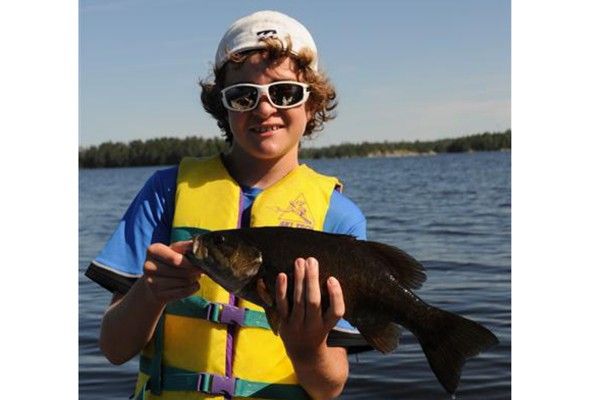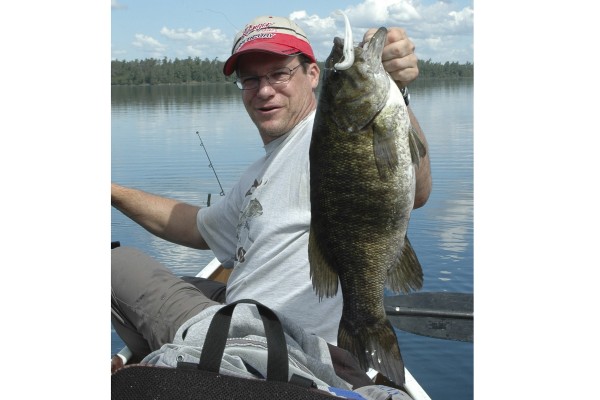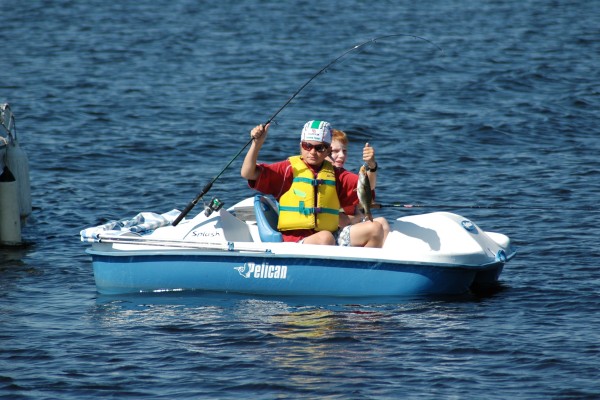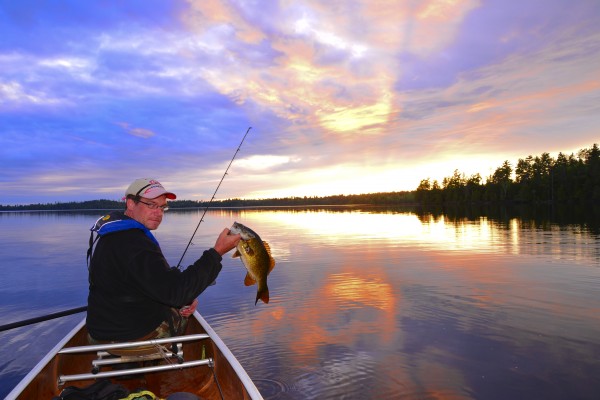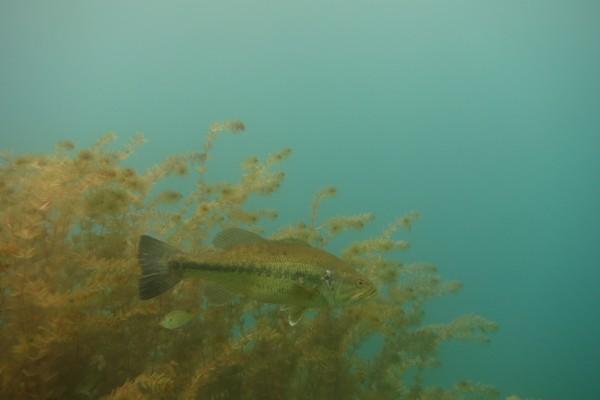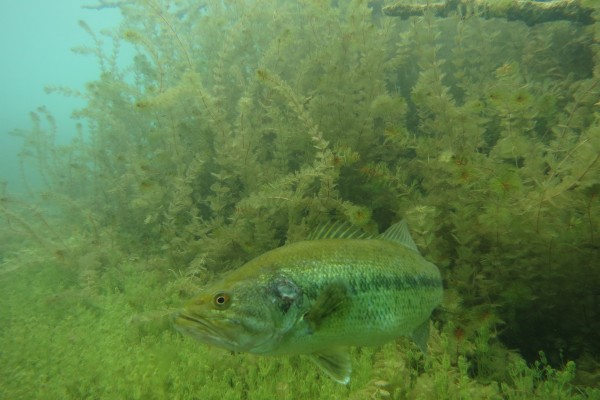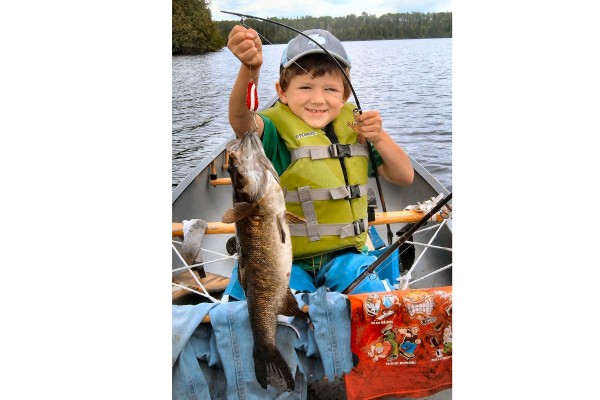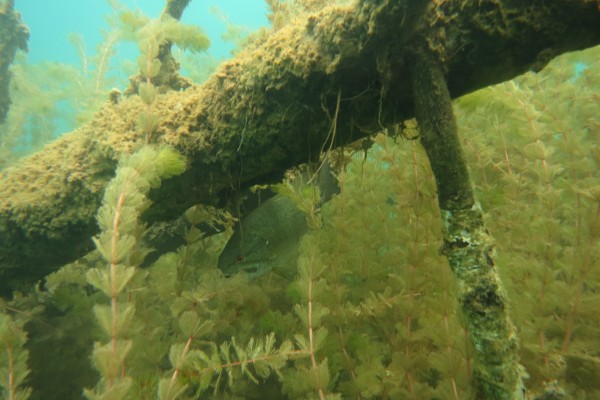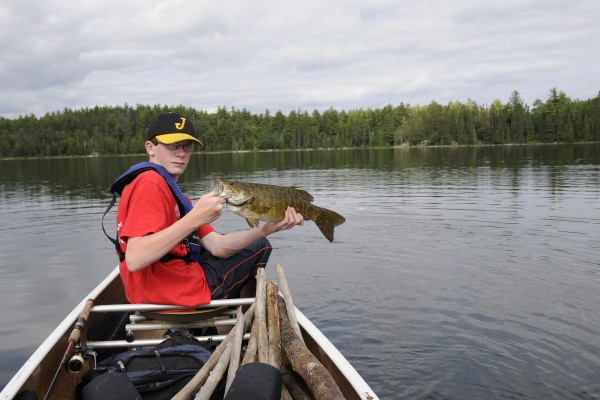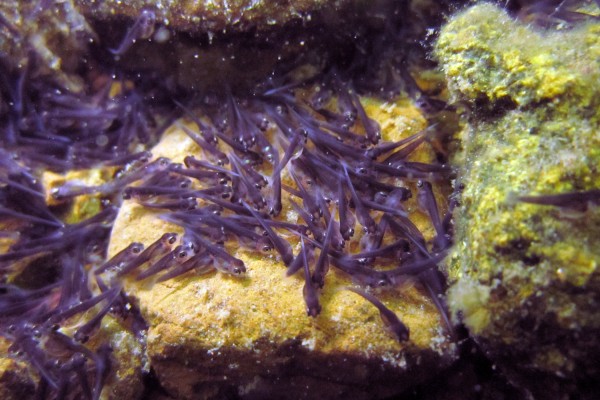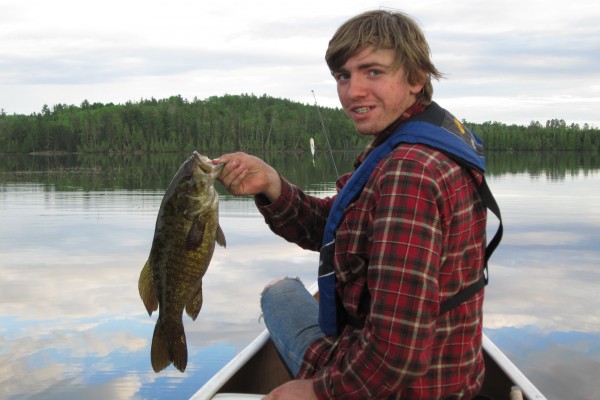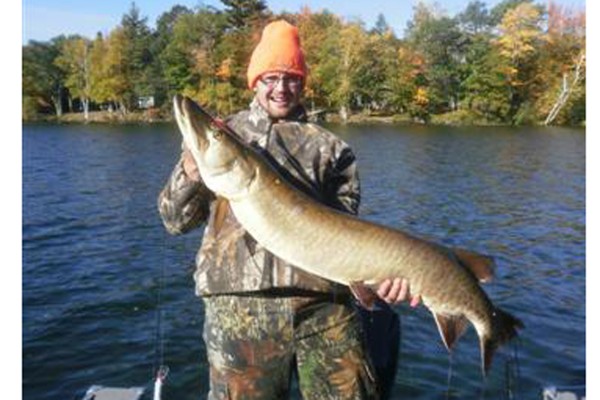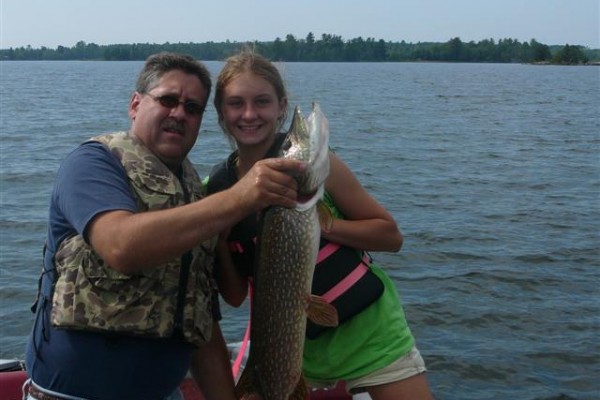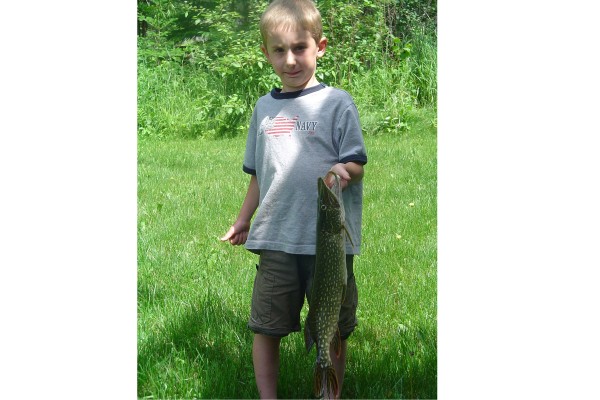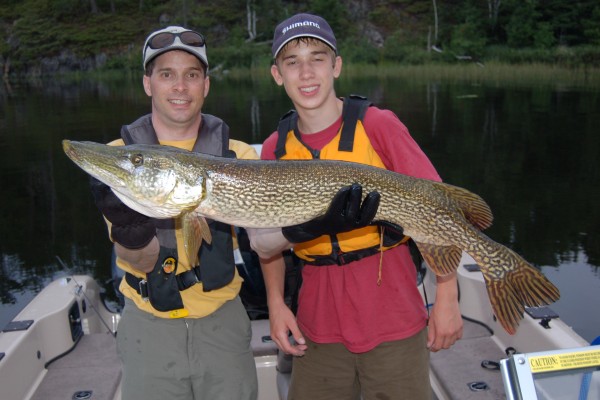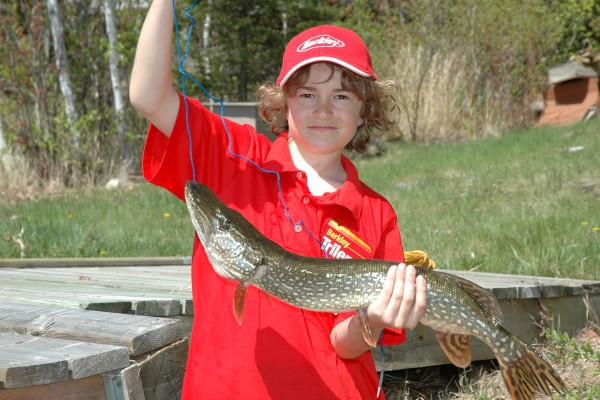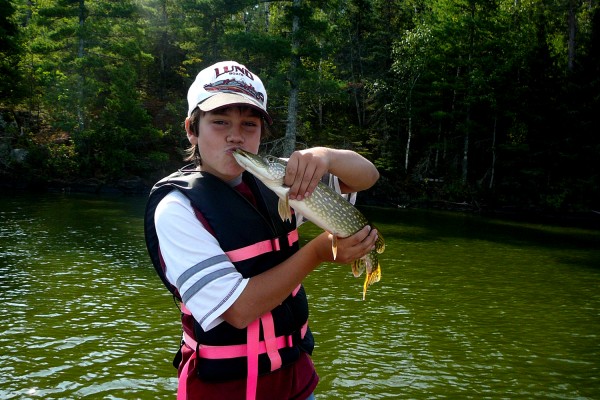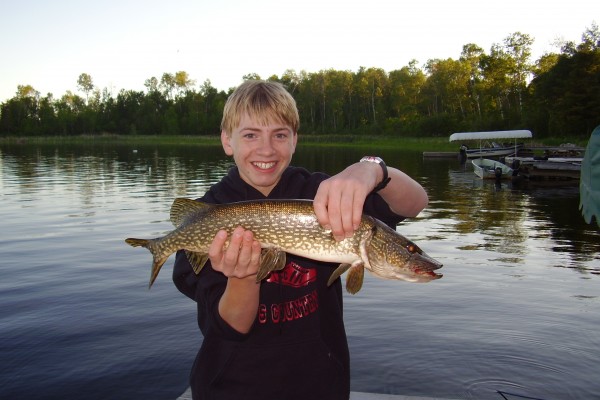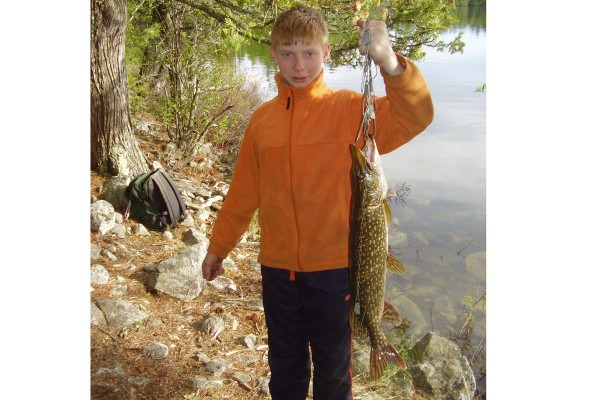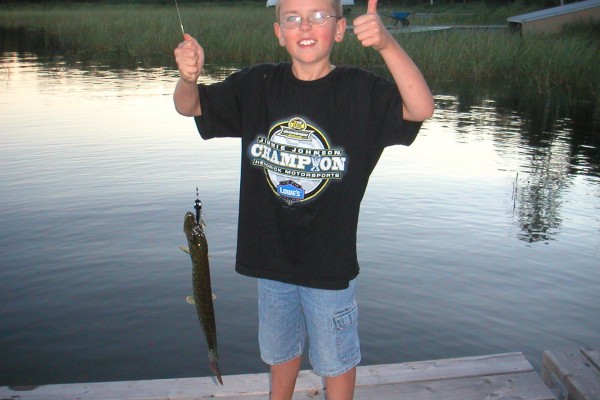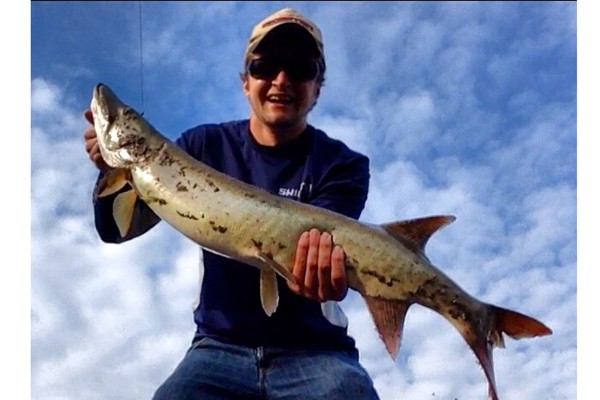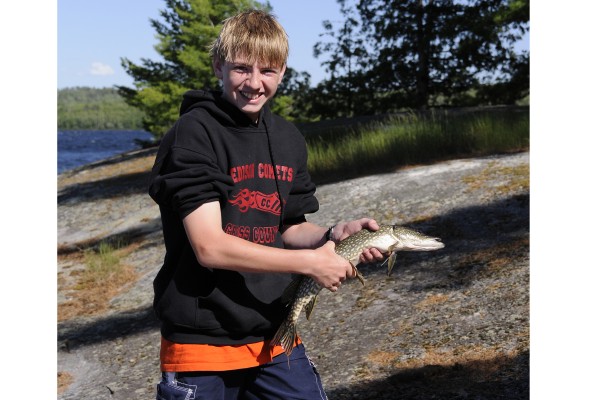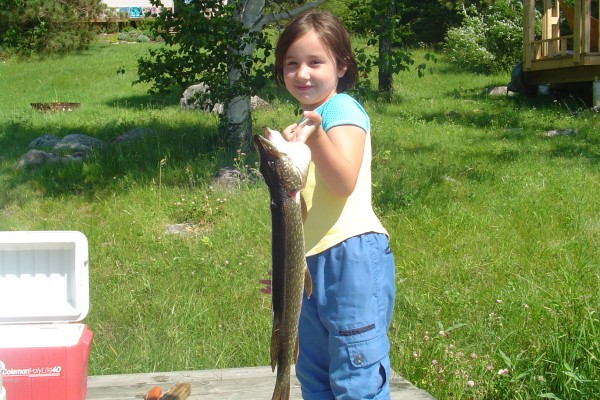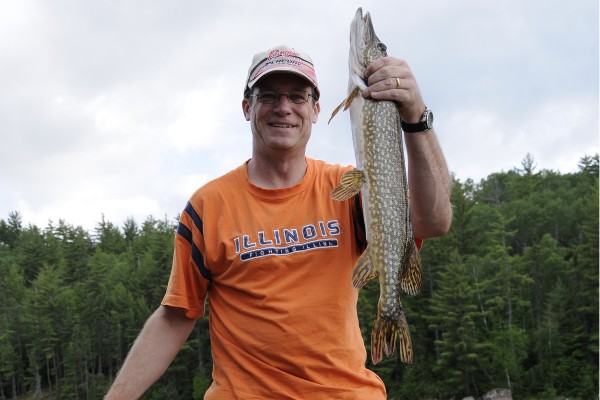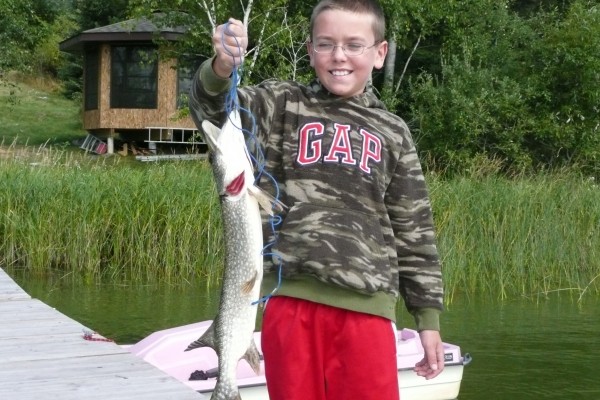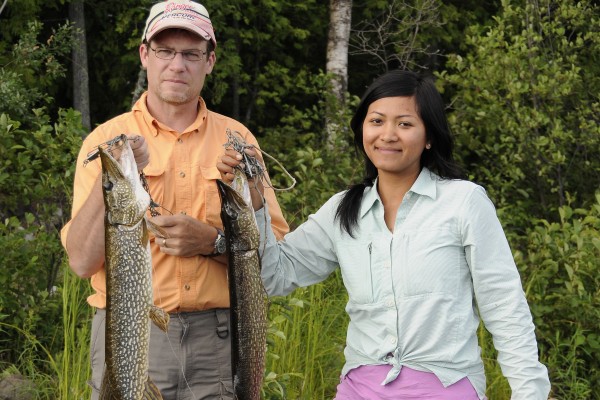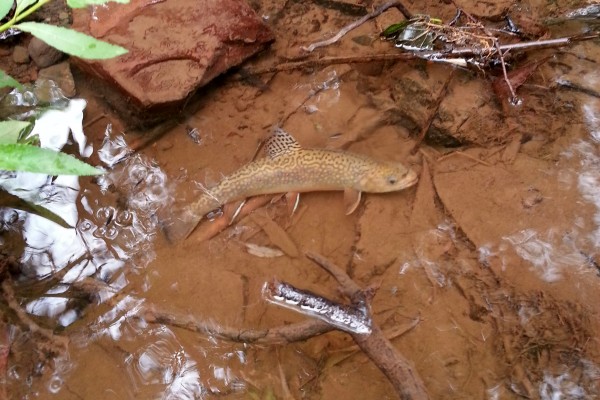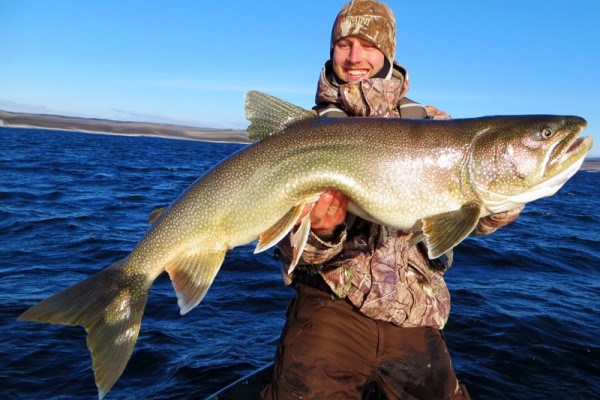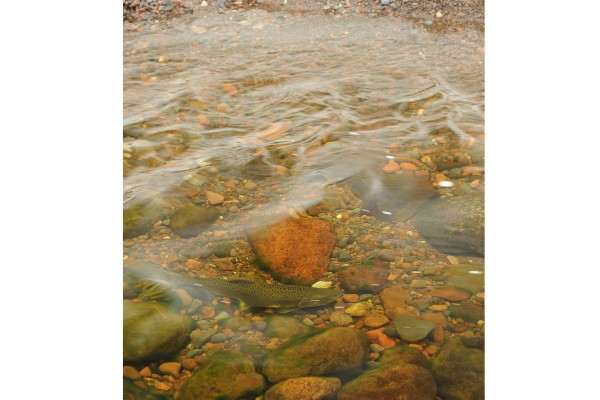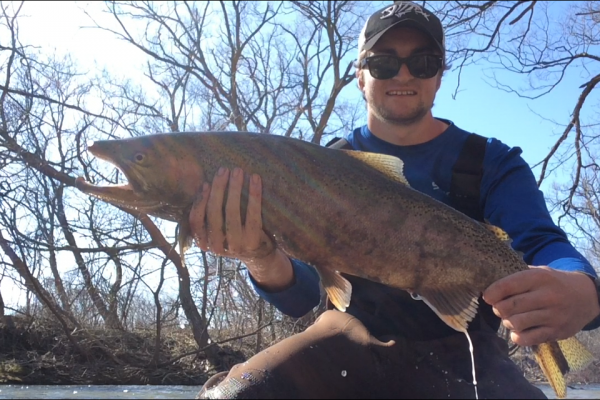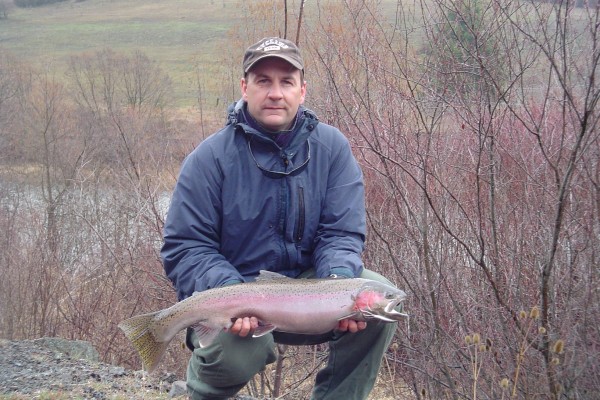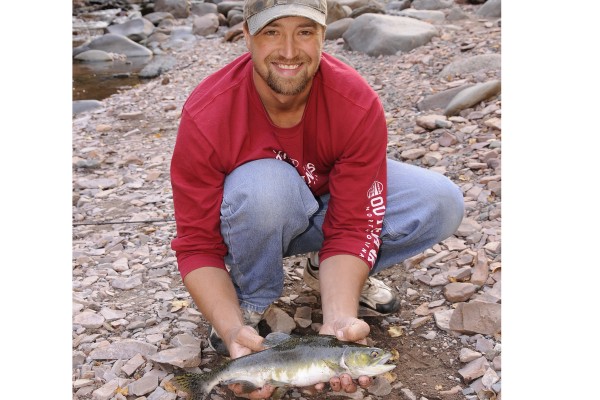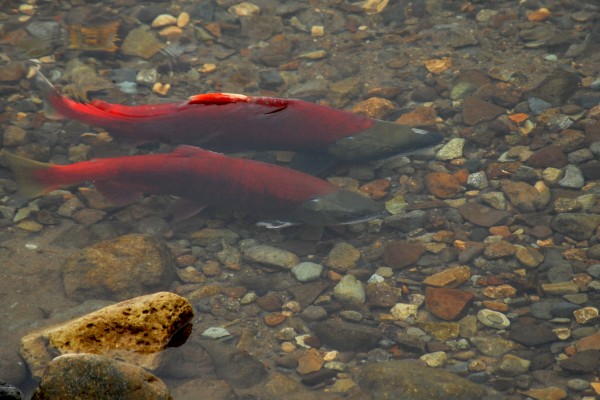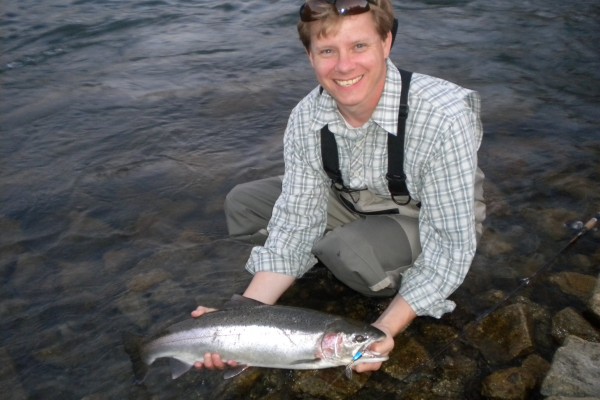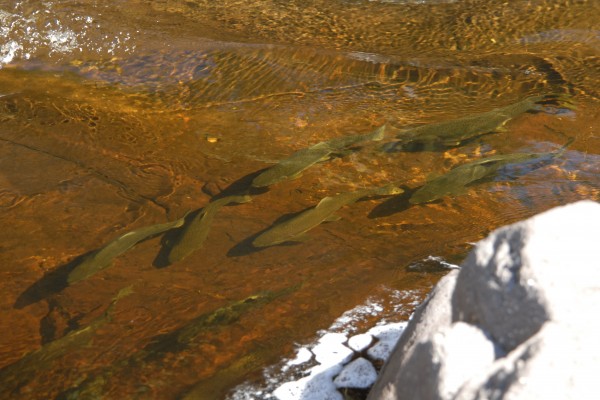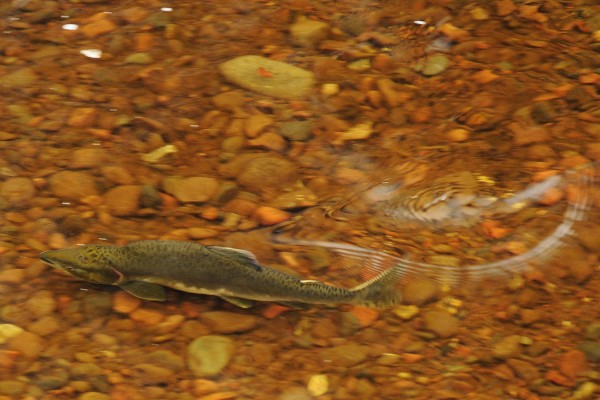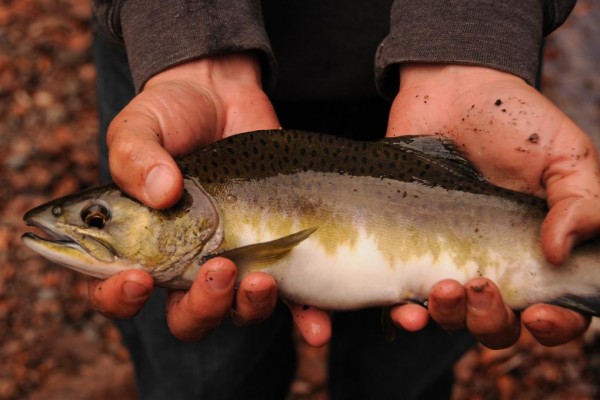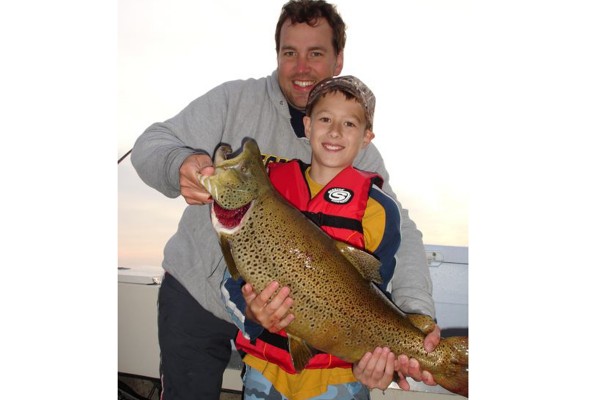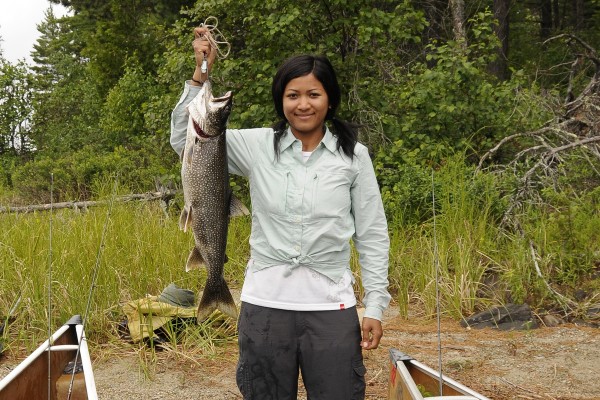Lots of jobs available! Please make sure you have the time to scroll way, way down!
Bemidji Area Fisheries (MN Dept Natural Resources) has positions of varying length for hire between April and October 2024. Two fisheries laborers, two full-time creel clerks, and two part time creel clerks are to be hired. To be considered, please send cover letter with a current resume. Cover letter should specifically name the positions you are interested in. Contact the Bemidji Area Fisheries Office directly if you would like more information.
Click HERE for all of the info needed.
Edie Evarts, Area Fisheries Supervisor
2114 Bemidji Ave N
Bemidji MN 56601
Office: 218-308-2330
U of Wisconsin – Stevens Point is hiring a motivated research assistant to help prepare sea lamprey DNA for Illumina sequencing. This work supports the GLFC-funded Supplemental Controls project, which aims to test the effects of control strategies used alongside ongoing lampricide treatments in Great Lakes tributaries. We’re encouraging applicants with a range of experience levels to apply, including current undergraduates, recent graduates, and master’s level scientists. Please see the attached job advertisement HERE and share with your lab groups.
Job Title: Seasonal Fisheries Technician
Department: Natural Resources Department, Little Traverse Bay Bands of Odawa Indians
Reports to: Great Lakes Fisheries Biologist
Salary Range: $15.98 to $22.37 per hour ($33,232 to $46,525) Annually
Status: Non-Exempt
Level: B21
Term Position: Grant funded for six months
Opens: April 01, 2024
Closes: Until Filled
SUMMARY: Provides support to the Great Lakes Fisheries Program and Natural Resources Department by
assisting and aiding with research and fieldwork. Primary duties will revolve around the LTBB Coregonid
Research Initiative. This position is funded for six months (1040 hours).
ESSENTIAL DUTIES AND RESPONSIBILITIES:
Research:
• Assist Fisheries Biologist and/or Great Lakes Research Specialist in lab and field work
• Assist and participate in current research projects (primarily Cisco and Lake Whitefish).
• Assist with operations of the LTBB Fisheries Enhancement Facility related to Cisco and
Whitefish rearing.
Fieldwork and Laboratory:
• Assist in fisheries program assessments using a variety of gear types (gill nets,
trawls, seines, and hydroacoustics).
• Assist in commercial harvest sub-sampling.
• Assist in collection, analysis, and recording of biological data (sex, age, maturity, spawning
condition, diet, health status) of harvested fish.
• Assist in habitat assessment activities
• Operate various types of field equipment (GPS, field meters, radios, power tools, etc. as needed).
Other Duties:
• Assist in composting of fishery assessments offal and processing fish for distribution.
• Assist in maintaining fisheries equipment (boat, trucks, lab equipment, etc.).
• Assist Fisheries Enhancement Facility and Commercial Management work when required.
• Other duties as assigned.
All information is available HERE.
Great Lakes Fishery Commission – Fish Passage Sorting Technology Analysis
Position: Post-doctoral Fishery Research Scientist / Engineer
Background: The bi-directional selective fish passage (FishPass) project at the Boardman/Ottaway River’s Union Street Dam in Traverse City, MI is a multi-agency collaboration aimed at providing up- and down-stream passage of desirable fishes while simultaneously blocking or removing undesirable and invasive fishes. Developing selective passage solutions for a mixed assemblage of fish requires an approach that accounts for variability within the assemblage by grouping species into guilds on the basis of their sortable phenological, morphological, behavioral, and physiological attributes. Passage and blockage schemes can then be formulated on the basis of differences and commonalities among guilds as opposed to the less efficient prospect of sorting individual species. The FishPass Advisory Board recently completed a guild analysis project that (1) compiled the FishPass Sortable Attribute Database, which includes 21 attributes and 220 species (Benoit et al., 2023), and (2) identified seven major attribute gradients that help to separate species into five distinct clusters. Based on the sortable attributes identified through the guild analysis and expert opinion, the FishPass Advisory Board has generated a list of 15 sorting / guidance technologies to screen for potential implementation at FishPass.
FishPass is currently under construction, and on-site selective fish passage research is expected to begin by 2027. In preparation for day one research, the FishPass Advisory Board has identified the need to compile the functional (and theoretical) capabilities, uncertainties, and configurations of the 15 sorting / guidance technologies identified for potential use in FishPass, and to use this information to prioritize 1-2 configurations for initial testing at FishPass.
Click HERE for all of the details on this opportunity.
Applicants are encouraged to submit a cover letter, CV, relevant publications, and names and contact
information for three references to Dan Zielinski ([email protected]). The anticipated start date for the
position is June 1, 2024 or sooner. The work can largely be done remotely, but in-office space can be made available. If desired, applicants may work under an existing academic affiliation with support for engagement in the project from their current supervisor.
Minnesota Sea Grant is recruiting applicants for the 2024 MNSG Community-Engaged Internship in Fisheries and Aquaculture (MNSG CEI). The undergraduate internships are designed to broaden participation in Great Lakes, marine, and coastal professions by providing training and mentorship to the next generation of scientists, decision-makers, and community members.
Application information can be found on the Sea Grant website here:
PDF is viewable HERE.
Application Period is Open – Deadline April 14, 2024
PhD Opportunity: Population Structure and Energy Coupling of Burbot @ Michigan Tech
We seek a highly motivated student to join our laboratory in the Department of Biological Sciences at Michigan Tech (https://www.mtu.edu/biological/people-groups/faculty-staff/faculty/olin/) with broad interests and/or experience in community assembly, food web interactions and energy transfer, and quantitative ecology techniques. The successful candidate will join a multidisciplinary team of researchers funded through the Great Lakes Fishery Commission to develop their research project related to the population structure and the role of burbot in coupling nearshore and offshore habitats of Lake Superior using a mixed-methods approach. The candidate will work with collaborators at Michigan Tech (Jill Olin, Gordon Paterson, Kristin Brzeski), MI DNR (Shawn Sitar) and NPS (Brandon Gerig).
Candidates with experience conducting fieldwork in aquatic ecosystems, analyzing and synthesizing different data resources (e.g., stable isotopes, fatty acids, otolith microchemistry, genomics), possessing strong quantitative and writing skills, ability to work collaboratively and independently and with a passion for ecology are particularly encouraged to apply. A BS, and preferably a MS in the field of community ecology, coastal ecology, fisheries, environmental science, or other related field of study is required. Applications from individuals underrepresented in STEM, including first-generation college students, students from low-income backgrounds, and students who identify as gender, racial, or ethnic minorities, are especially welcomed. Competitive stipends will be provided in the form of research and teaching assistantships. Applications will be considered beginning 15 February 2024, with a position start date of Summer 2024. Interested applicants should submit a single PDF file containing a cover letter outlining your general research interests and those specific to this opportunity and a CV that includes contact information for three references to Jill Olin at [email protected].
The Little River Band of Ottawa Indians (Manistee, Michigan) are looking for a few seasonal Fisheries and Natural Resource Technicians for this summer as well as a full-time Great Lake Technician. These positions are a good opportunity to get some great experience. Job descriptions are below, and can also be found at https://lrboi-nsn.gov/resources/employment-opportunities/
Southern Lake Huron Management Unit (MI DNR) is hiring 1 to 2 seasonal workers for up to 1040 hours between March and September.
Duties: Principal duties are to assist with field sampling for fisheries assessment surveys, including the collection of fish biological data. Candidate will also assist with fish rearing and stocking of Walleye. Additional duties will consist of equipment and facility maintenance, computer data entry, and support data quality assurance/quality control. Candidate will learn field skills related to fish collections and use organizational, data management, and interpersonal skills. Other related duties may be assigned as needed.
All details are available HERE.
Senior Research Technician. The Ohio Division of Wildlife and Ohio State University seek a Senior Research Technician to assist with field and lab work at the Sandusky Fisheries Research Unit. This candidate will work with biologists on Lake Erie and conduct their own research project. This is a 1-2 year position with an hourly wage between $17.10 – $22.62; Bachelor’s degree and some experience are required. For more information and to apply, visit the job website. Questions can be referred to Eric Weimer ([email protected]).
Job Title: Field Research Technician (Seasonal/Temporary)
Hours per Week: 40-64
Salary: $20.00/Hour
Agency/Location: Great Lakes Environmental Center, Inc., Traverse City, Michigan
Overview:
Great Lakes Environmental Center, Inc. (GLEC) is anticipating an expansion of our staff and is looking for qualified candidates to assist in conducting the US EPA’s 2023-2024 National Rivers and Streams Assessment (NRSA). The NRSA is a probabilistic survey of the nation’s flowing waters. GLEC anticipates hiring multiple (10-11) seasonal field technician positions for 2024.
Responsibilities:
Primary responsibilities include assisting with electrofishing in rivers and streams, collection of macroinvertebrate and water chemistry samples, instream habitat assessment, data entry, and maintenance of field equipment. Extensive overnight travel for 3-4 weeks at a time is required. Sampling locations include the following states; Arizona, New Mexico, Arkansas, Missouri, Minnesota and Michigan.
All job details can be viewed HERE.
Limited Term Field Technician Position
Great Lakes Environmental Center, Inc. (GLEC) is recruiting highly motivated candidates for a one-year Field Technician position based at the Traverse City, Michigan office. GLEC is an established employee-owned contract research firm that is a national leader in protecting aquatic environmental resources through work for federal, state, industrial and non-profit organizations. Responsibilities for the position include National Rivers and Streams Assessment (NRSA) sample collection and processing throughout the states of Michigan, Arizona, New Mexico, Missouri and Minnesota. The work schedule will include holidays, weekends and work days over eight hours.
All job details can be viewed HERE.
The Wisconsin Cooperative Fishery Research Unit at UW-Stevens Point will be hiring several fisheries research technicians for the 2024 field season. See the posting HERE for more information.
The Illinois Natural History Survey is seeking 3 field technicians to conduct applied research in aquatic ecology and large river systems throughout the state of Illinois. Technicians will assist large river ecologists in the collection of standardized long-term river monitoring data with additional targeted data collection. This position will be 40 hours per week and will be located in Oglesby, Illinois at Starved Rock State Park.
A full job description and how to apply is available HERE.
Eastern Illinois University, MS Graduate Research Assistantship Opportunity in Fisheries Ecology and Management
Location: Eastern Illinois University, Charleston, IL
The Center for Fisheries and Aquatic Sciences at Eastern Illinois University (EIU) invites applications for several
MS graduate research assistantships, with a potential start date ranging from April to June 2024.
Research Focus:
Candidates will have the opportunity to contribute to various funded research projects based on their
experience and interests:
1. Investigating catfish population dynamics and recruitment in the Wabash River to help evaluate current
management and harvest regulations. This project will provide valuable catfish (Flathead, Blue, and
Channel) management recommendations and conservation strategies.
2. Studying Channel Catfish population dynamics in impoundments and assessing the efficacy of using
artificial spawning structures to improve recruitment and population sizes. This project includes an
outreach component involving local school groups and community engagement.
3. Exploring early life stage dynamics and sources of propagule pressure of invasive carp
(Hypophthalmichthys spp.) in tributaries of the Wabash River. This is part of a multi-state, multi-agency
cooperation to identify invasive carp spawning locations and recruitment in the Ohio River Basin.
A full description of the project and how to apply is available HERE.
Ph.D. Position in Aquatic/Fisheries Ecology
Aquatic Ecology Laboratory
Dept. of Evolution, Ecology, and Organismal Biology
The Ohio State University
Columbus, OH
Research opportunities: Dr. Stuart Ludsin (u.osu.edu/ludsinlab) has an opening available for a Ph.D. student to begin during summer or autumn 2024. The student would work closely with Dr. Ludsin and state, provincial, and federal agency collaborators to assess how removal of a dam in the Sandusky River (OH), which is an important Walleye spawning tributary, has influenced spawner movement behavior and relative contributions of recruits from this spawning stock to Lake Erie’s open-lake population and its recreational and commercial fisheries. Changes in spawner movements will be assessed by comparing acoustic telemetry data collected before dam removal with new telemetry data collected as part of this study. Changes in the relative contributions of recruits from the Sandusky River spawning stock to Lake Erie’s open-lake population and fisheries will be quantified using otolith microchemistry; we will use laser-ablation inductively coupled plasma-mass spectrometry (LA-I CPMS) to quantify trace metals (especially strontium, which can clearly distinguish individuals produced in the Sandusky River from other spawning areas) in the core of archived otoliths and those collected as part of this project (5 years before vs. 5 years after dam removal). An amazing collection of otoliths exists from both fishery-independent (gillnet and bottom trawl) and fishery-dependent (recreational and commercial) assessment surveys made in Lake Erie’s western, central, and eastern basins. The opportunity to design a field-, lab-, and modeling-based project exists, with funds existing to support technical help, meeting travel, and computing needs.
Location: The successful candidate will join a dynamic, interactive group of students, post-docs, and faculty at The Ohio State University’s Aquatic Ecology Laboratory (ael.osu.edu) within the Department of Evolution, Ecology, and Organismal Biology (eeob.osu.edu).
Qualifications: Dr. Ludsin is seeking someone who is creative, curious, motivated, and capable of working effectively both independently and in collaborative groups. A M.S. degree in biology, ecology, fisheries, general aquatic sciences, biostatistics, or a related field is required. Strong communication (written and oral), quantitative, and people-management skills are essential, as is a desire to learn.
Stipend: ~$2,500/month plus full tuition waiver and health benefits. Graduate Research Assistantship (GRA) support exists (3.5 years in total), with additional Graduate Teaching Assistantship support available. Opportunities to secure additional GRA and Fellowship support will exist as well, if needed.
Start date: Summer or fall 2024, depending on the student’s desire.
How to apply: If interested in the position, email Dr. Stuart Ludsin ([email protected]): 1) a 1-2 page letter of interest that describes your educational and research background, as well as your research interests and career goals; 2) a curriculum vitae (CV); 3) unofficial copies of your college/graduate school transcripts; 4) contact information for at least 3 professional references; 5) your GRE scores if so desired (they are not required); and if applicable, 6) your TOEFL/TSE scores. Please put “Lake Erie Walleye PhD Position” in the subject line of your email. EEOB will start reviewing applications on Nov. 15 to identify students eligible to compete for University and College Fellowships (gradsch.osu.edu/faculty-and-
Additional information: For additional information about application procedures and requirements, visit eeob.osu.edu/grad/program-

